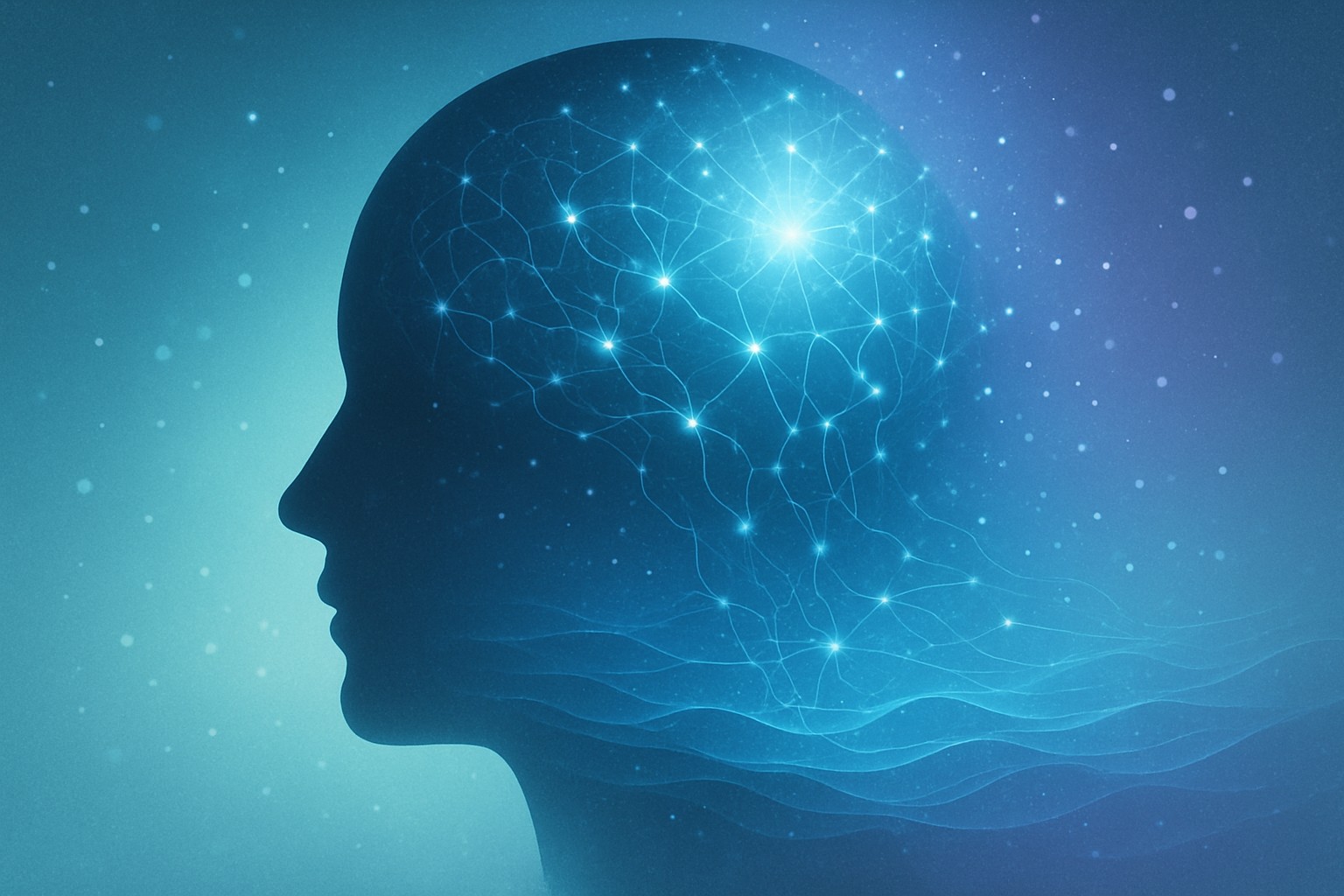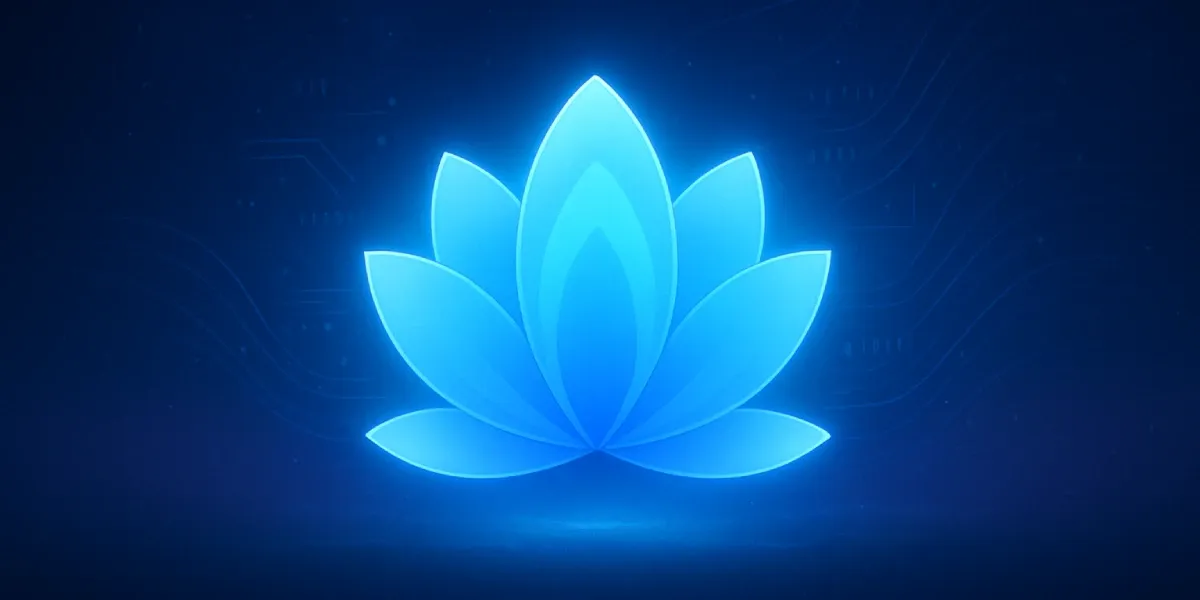Traditional mental health care remains out of reach for 42% of adults. AI meditation has reshaped the way we think about mindfulness and emotional healing in our tech-driven world.
Science backs this up. Mindfulness practices substantially lower stress, anxiety, and depression levels. AI meditation apps have taken things further. They create customized sessions that adapt to your experience level, mood, and meditation history. These smart tools track your progress and give you live feedback about your body's response during practice.
Let's get into how AI-powered meditation works. We'll look at the science that proves it works and understand where it falls short. You'll find how this technology builds tailored experiences while you retain control over authentic meditation practice.
The Science Behind AI Meditation Tools
"The mind is definitely something that can be transformed, and meditation is a means to transform it." — Dalai Lama, Spiritual leader of Tibetan Buddhism
The science behind AI meditation tools keeps evolving as researchers study how well they work compared to traditional practices. New studies give us fascinating details about how these digital approaches affect our brains and overall well-being.
What researchers have found about AI meditation
Studies confirm that digital mindfulness meditation works effectively in controlled settings, though questions still exist about benefits beyond the first 8-12 weeks. Research about the link between meditation time and results shows mixed outcomes. A meta-analysis found that short mindfulness programs worked just as well as longer ones to reduce psychological distress in working people.
The specific type of meditation makes a big difference. Various meditation techniques use different cognitive mechanisms—some look inward at body sensations (interoception), while others focus outward (exteroception). This affects how AI tools guide users and might influence their long-term success.
AI applications in schools have shown good results for student stress levels and grades. A study with the Headspace app found that there was a strong link between using meditation apps and lower stress levels (ρ = 0.3604, p < 0.05) and better wellbeing scores (ρ = 0.8947, p < 0.05).
How AI affects brain activity during meditation
New research using intracranial EEG recordings shows that meditation changes the amygdala and hippocampus—brain areas key to emotional control and memory. Even first-time meditators showed changes in beta and gamma waves, the same brain waves that change in mood disorders like depression and anxiety.
Meditation activates areas linked to attention, emotional control, and self-awareness. Studies of Taoist meditation revealed higher theta and alpha power during rest, which shows a state of "relaxed alertness". These brain changes suggest that AI-guided meditation can create similar helpful brain states with proper design.
Comparing AI meditation to traditional approaches
AI meditation tools offer unique benefits over traditional methods:
Personalization: AI looks at user's behavior, priorities, and emotional states to create customized experiences
Immediate feedback: Advanced systems can track brain activity, heart rate, and breathing patterns during sessions
Accessibility: Apps let people meditate anywhere, anytime, without location or schedule limits
Traditional approaches still have benefits that technology can't fully match. Research shows that in-person teacher-student contact helps meditation work better. On top of that, some studies suggest mixing tech-based practice with non-digital meditation helps prevent too much dependence.
Current machine learning research tries to predict who will respond best to mindfulness-based stress reduction. This could help healthcare providers create better treatments for chronic pain and other conditions. This growing field shows how AI might eventually connect digital convenience with personalized effectiveness.
Measuring Real Results from AI-Guided Meditation
Research shows AI-guided meditation practices create measurable improvements in people's overall wellbeing.
Stress reduction outcomes in clinical studies
Recent clinical research proves digital mindfulness programs help reduce stress. A large study of 1,458 employees showed remarkable stress reduction when they used a digital mindfulness program (Cohen d, 0.85). The benefits lasted well beyond the initial period, staying strong even after four months (Cohen d, 0.71). The research team found that people who used the app for 5-10 minutes each day felt less stressed than those who used it for under 5 minutes.
Sleep improvement data
AI meditation apps work really well to help people sleep better. Research on popular apps shows about 90% of Calm users had trouble sleeping, and 77% downloaded the app to help them rest better. These digital meditation tools proved especially good at lowering both mental and physical tension before bedtime, which helps improve sleep quality. The study found that changes in pre-sleep tension halfway through the program completely explained the drop in depression and partly explained reduced anxiety among adult users.
Focus and attention span changes
AI meditation tools help sharpen attention skills. A seven-year study in Springer's Journal of Cognitive Enhancement found that "intensive and continued meditation practice is associated with enduring improvements in sustained attention". Brain scans show regular meditation actually changes the thickness of brain areas linked to sensory processing, hearing, vision, and internal body awareness. These brain changes help people become more aware and focused.
Emotional regulation benefits
People who use AI-guided meditation get better at managing their emotions. Research shows mindfulness training makes people more self-aware and better at controlling their impulses. AI apps boost user engagement through customized suggestions and immediate feedback. This technology helps people develop better ways to handle stress and control their emotional responses.
How AI Personalizes Your Mindfulness Journey
The digital world today often leaves our minds wandering while our emotions stay disconnected. AI meditation helps bridge this gap by creating individual-specific mindfulness experiences that adapt to your needs.
Live emotional detection technology
AI-powered meditation apps now use sophisticated emotion detection capabilities that analyze facial expressions as they happen. These systems identify various emotions—happiness, sadness, anger, surprise, fear, and disgust. The technology learns about your emotional responses during meditation sessions by monitoring these subtle facial cues.
Some advanced platforms merge biofeedback mechanisms that track physiological signals like heart rate variability and breathing patterns. This all-encompassing approach helps the AI understand your emotional state precisely, which builds the foundations for personalized guidance.
Adaptive guidance based on user responses
AI mindfulness tools shine through their capacity to learn and grow with you. These systems analyze your meditation history, stress levels, and emotional patterns to create custom mindfulness experiences instead of playing pre-recorded content.
To cite an instance, the AI recognizes when you often participate in stress-relief meditations at night and suggests similar sessions at that time. It also:
Recommends specific anxiety-reducing practices when your stress levels spike
Refines its understanding of your priorities as you search for specific topics
Makes recommendations more tailored based on your feedback
Creating a meditation sanctuary through technology
The most remarkable aspect shows how AI turns technology from a distraction into a sanctuary for inner peace. Several platforms now create immersive meditation experiences by combining AI-created visualizations with personalized soundscapes.
You can ask for specific meditations that address your unique situations—like "help me not get triggered by my boss in meetings". The AI quickly crafts a personal meditation with your chosen voice, duration, and background music. This creates your digital sanctuary that matches your mindfulness experience perfectly.
Potential Limitations of Spiritual Wellness Apps
"To understand the immeasurable, the mind must be extraordinarily quiet, still." — Jiddu Krishnamurti, Philosopher and speaker
AI meditation tools offer promising benefits, but we need to carefully examine several key limitations before we mix technology with spiritual practices.
The consciousness gap: what AI cannot replicate
AI meditation apps lack a fundamental quality that every living cell possesses - consciousness. This creates a barrier in authentic spiritual guidance. Research shows AI might be intelligent, but intelligence and consciousness likely exist separately in artificial systems.
AI still can't grasp human experiences like qualia, intentionality, and self-awareness. Religious scholars point out that AI-powered spiritual tools can "deflate the breath of life from our sacred sentences". This shortcoming becomes clear when practices need real empathy and spiritual insight.
Data privacy considerations
Privacy stands out as a major drawback. Mozilla's investigation found that 22 of 32 popular mental health apps got a "privacy not included" warning label. These apps collect sensitive data but don't protect it well enough.
Research has uncovered troubling privacy problems, from unnecessary permissions to weak security systems. Many apps share personal details with other companies - BetterHelp even shared customer information with Meta and Snapchat for ads.
The situation gets worse. 24 of 27 app privacy policies need college-level reading skills to understand. These privacy risks matter even more because spiritual wellness apps handle deeply personal information.
The risk of technology dependence
Our growing reliance on technology changes meditation's traditional benefits. Advanced meditation works best without tech help - just like riding a bike without training wheels.
People who depend too much on technology often miss out on face-to-face connections that offer richer emotional experiences. This creates problems in spiritual practices where physical presence matters most.
Looking at screens before bed hurts sleep quality. This works against one of meditation's main benefits. Mindfulness apps make practices more available, but they sometimes make meditation look too easy. Users might give up when they face real challenges later.
Conclusion
Research shows AI meditation can help you reduce stress, sleep better, and stay focused. Digital mindfulness tools might not match the depth of traditional meditation, but they offer something different through tailored experiences and easy access.
Our busy lives just need new ways to stay mentally healthy. AI-powered meditation bridges the gap between old wisdom and today's needs. These tools don't replace traditional practices - they make mindfulness easier to track and more approachable.
Sacred Space turns your device from something distracting into a peaceful retreat. You can download Sacred Space now to get AI meditation guidance that adapts to your emotional state and progress.
Note that technology is just one part of a balanced meditation practice. Mindfulness remains personal - AI simply helps guide you toward better self-awareness and emotional control. As the research field grows, we'll likely see new ways for technology to support our shared search for inner peace.
FAQs
Q1. How effective is AI-guided meditation compared to traditional methods?
Studies show that AI-guided meditation can be as effective as traditional methods for reducing stress and improving well-being. It offers unique advantages like personalization and accessibility, but may lack the human touch of face-to-face instruction.
Q2. Can AI meditation apps really help improve sleep?
Yes, research indicates that AI meditation apps can significantly improve sleep quality. Many users report reduced pre-sleep arousal and better overall sleep patterns after using these apps regularly.
Q3. How does AI personalize the meditation experience?
AI personalizes meditation by analyzing user behavior, preferences, and emotional states. It can detect emotions in real-time, adapt guidance based on user responses, and even create immersive experiences with customized visualizations and soundscapes.
Q4. Are there any privacy concerns with using AI meditation apps?
Privacy is a significant concern with AI meditation apps. Many collect sensitive data and have been found to share personal information with third parties. It's important to carefully review an app's privacy policy before use.
Q5. Can AI meditation lead to technology dependence?
While AI meditation tools offer convenience, there is a risk of becoming overly reliant on technology for mindfulness practices. It's recommended to balance AI-guided sessions with traditional, non-digital meditation to maintain a well-rounded practice.

.png?_a=BAMAABXy0)


